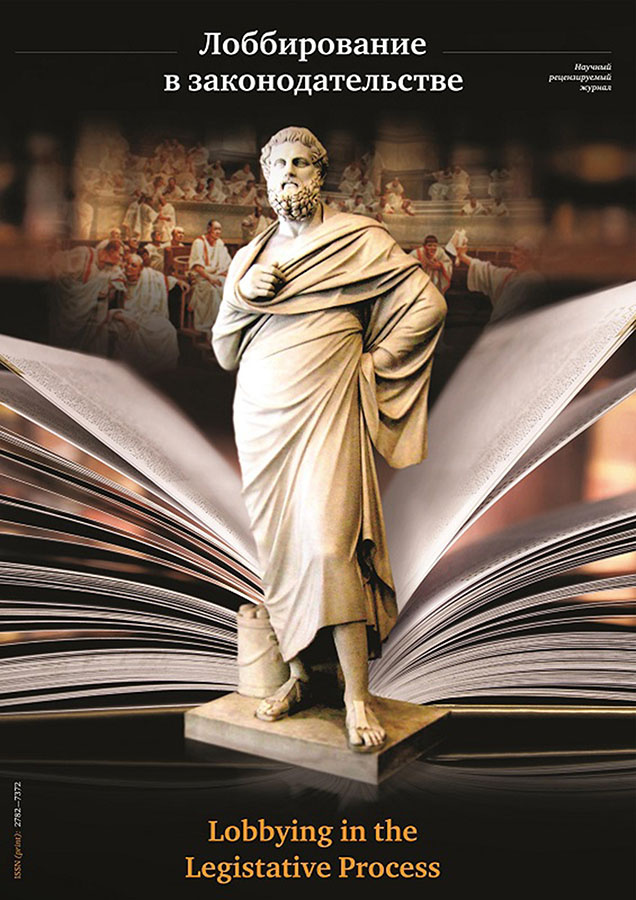The global race for artificial intelligence: regulatory and other acts governing the development and application of artificial intelligence in the United States of America
- 作者: Belikova K.M.1
-
隶属关系:
- Kutafin Moscow State Law University (MSAL)
- 期: 卷 4, 编号 3 (2025)
- 页面: 24-34
- 栏目: Public law (state law)
- URL: https://journals.eco-vector.com/2782-7372/article/view/694071
- DOI: https://doi.org/10.33693/2782-7372-2025-4-3-24-34
- EDN: https://elibrary.ru/ZKZKJX
- ID: 694071
如何引用文章
详细
The article is devoted to a comprehensive analysis of the strategy of the United States of America in the field of artificial intelligence (AI) development and regulation, focusing on the key policy document – “America’s AI Action Plan” (July 2025), issued under President D. Trump’s Executive Order 14179. The main provisions of the plan are structured around three pillars: 1) accelerating innovation through deregulation, support for Open-Source AI, integration of technologies into the public sector and various economic industries, investments in fundamental science, and AI safety measures; 2) building infrastructure by streamlining permitting procedures, modernizing power grids, revitalizing semiconductor manufacturing, and enhancing cybersecurity; 3) asserting global leadership through the export expansion of American technologies to allies, countering China’s influence, and tightening export controls against adversary nations. Other documents are also analyzed (e.g., the Presidential Executive Order of July 23, 2025, “Preventing Woke AI in the Federal Government” among others). Proceeding from the concept of an objectively-subjectively determined world and assuming the emergence of AI as part of objective reality and the objective process of humanity’s development, the author concludes that despite the declared commitment to safety, US policy is distinctly protectionist in nature and aims at technological dominance and containment of competitors, primarily the PRC. The AI Development Plan represents a combination of measures to accelerate domestic development and promote it on the global arena.
全文:
作者简介
Ksenia Belikova
Kutafin Moscow State Law University (MSAL)
编辑信件的主要联系方式.
Email: KMBelikova@msal.ru
ORCID iD: 0000-0001-8068-1616
SPIN 代码: 2541-3498
Dr. Sci. (Law), Professor; Professor, Department of Entrepreneurial and Corporate Law
俄罗斯联邦, Moscow参考
- Belikova K.M. Experimental legal regulation in the field of Artificial Intelligence in Russia (on the example of Moscow). Gaps in Russian Legislation. Legal Journal. 2024. Vol. 17. No. 5. Pp. 045–052. (In Rus.). doi: 10.33693/2072-3164-2024-17-5-045-052. EDN: NHVEGK.
- Belikova K.M. et al. Legal regulation of new military technologies in the light of intellectual property legislation and the responsibility of a scientist in BRICS countries. Monograph. K.M. Belikova (ed.). Moscow: MDMprint, 2022. 528 p.
- Belikova K.M. Some legal aspects of cooperation in the context of fragmentation of international law. Problems of Economics and Legal Practice. 2024. Vol. 20. No. 3. Pp. 51–61. (In Rus.). doi: 10.33693/2541-8025-2024-20-3-51-61.
- Ponkin I.V. Application of generative Artificial Intelligence in scientific research and applied analytics in ensuring public administration: Positive opportunities and pitfalls. International Journal of Open Information Technologies. 2025. Vol. 13. No. 1. Pp. 100–113. (In Rus.)
- Ponkin I.V. Artificial Intelligence in healthcare: Concept, challenges, and legal aspects. Business, Management, and Law. 2025. No. 2 (66). Pp. 62–67. (In Rus.)
- Belikova K.M. Experimental legal regulation of artificial intelligence abroad. Law and Business. 2024. No. 4. Pp. 2–7. (In Rus.)
- Belikova K.M. On the way to developing “strong” artificial intelligence in Russia and abroad: Some elements of strategies and legal regulation. Gaps in Russian Legislation. 2025. Vol. 18. No. 5. Pp. 58–66. (In Rus.). doi: 10.33693/2072-3164-2025-18-5-58-66. EDN: DZJHZS.
补充文件








